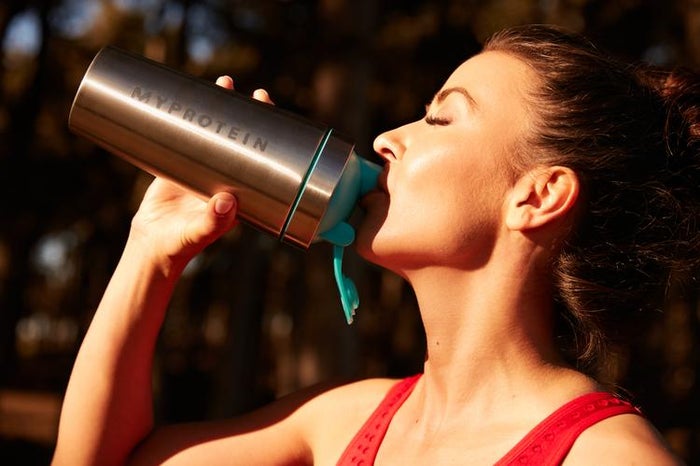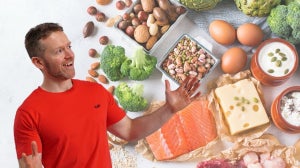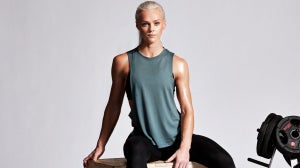
Whey protein powder is a delicious, convenient, and powerful supplement for all levels of athletes. In fact, it’s the most common form of protein supplement available and comes in dozens of flavours. However, whey protein would not be considered vegan, but it is suitable for those who follow a vegetarian diet.
Why isn’t whey protein vegan?
People who follow a vegan diet don’t consume any animal-based foods or any foods that are made by animals. Whey protein is derived from cow’s milk. For this reason, whey protein is not classified as vegan but is considered to be vegetarian. Even though it’s not the same as drinking a glass of milk, the whey powder is still a product of something produced by an animal. Those who follow a vegan diet avoid everything from meat, poultry, and fish and sometimes even honey (since it’s made by bees).
Vegetarian diets can vary widely — some vegetarians consume dairy products like whey protein (lacto-vegetarians), and others include eggs (ovo-vegetarians) or fish (pescatarians), simply avoiding meat and poultry. While everyone has their own reason for following a vegetarian or vegan diet, there are plenty of other protein sources for those limiting their animal food intake.

Vegan Protein Sources
There are plenty benefits of getting adequate protein in your diet — it’s required for many of the body’s daily functions. Our muscles are always in a state of flux, being torn down and rebuilding, especially during and after exercise.1 Protein is also crucial during periods of growth and recovery – like after surgery, when a wound is healing, or after being burned.1
1. Beans and pulses
Plant-based protein is more common in our diets than you might think. The first plant-based proteins to come to mind are probably soy or tofu, but beans, peas, and lentils are all very high in protein. Getting protein from plant-based sources also gives you the benefits of higher fibre and a variety of nutrients. Nuts and seeds are good sources of protein in addition to healthy fats.
2. Protein supplements
Athletes often require more protein than the average sedentary person, and protein supplements have been popular for many years. The benefits of supplementing with protein powders may include increased or retained muscle mass, shorter recovery time, increased strength, and body composition changes.1
3. Wholegrains
Wholegrains (and even refined grains) contain moderate levels of protein, too — a cup of pasta has about 8 grams (the same as a large egg). Quinoa, amaranth, and bulgur are all great whole grain sources of protein.
4. Fruit, vegetables, nuts and seeds
Even fruits and vegetables can contain small amounts, which adds up during the day. When following a healthy vegan diet rich in various fruits, vegetables, whole grains, nuts, and seeds, athletes can obtain healthy levels of protein without animal-based products.
With the low-carb high-protein diet trend of the last few years, food companies are getting more creative with plant-based protein foods. You can buy chickpea snacks, dried edamame, or pasta made from beans for an extra boost of protein. Following a vegan or vegetarian diet can still provide plenty of protein, but plant-based protein powders are another way to boost your intake.
What is vegan protein made of?
Just like there are many options for whey protein powders, the selection of vegan protein powders on the market also vary. While the most common vegan option is soy protein, there are many more on the market than a few years ago — including pea protein, hemp protein, rice protein, and blends of vegetable-based sources.
Due to their sourcing, vegan protein powders are cholesterol free, often low in fat, and possibly even lower in calories than their whey counterparts. However, they might be a less concentrated source of protein than the same size scoop of whey, so make sure to check out the label on your product to see exactly many grams each serving contains.
Like all protein sources, vegan protein powders are made up of different combinations of amino acids. Whey protein is a considered a “complete” protein, containing all of the nine essential amino acids that our body can’t make on its own.
When you eat animal products, it’s a bit easier to obtain a greater variety of amino acids, but the key for plant-based eating is variety. However, many cultures who follow primarily vegan diets combine their plant-based protein food intake to cover the entire range of amino acids. For example, beans and rice together provide all of the nine essential amino acids. If you want to use vegan protein powder, you can look for one that is supplemented with all the essential amino acids, or alternate between two different sources like soy and pea protein.
Take Home Message
While whey protein is vegetarian, it isn’t vegan. Whey is a common protein supplement, but there are many other plant-based options on the market for those following a vegan diet. Pea, brown rice, hemp, and soy protein powders are just a few of the wide variety of protein supplement options. Protein plays many roles in the body and is required in higher amounts for athletes.1 Vegan athletes can meet their protein needs by including plant-based protein sources with each meal (like beans, peas, soy, and whole grains) and supplementing with vegan protein powders based on their workout regimen to optimise their results.
Our articles should be used for informational and educational purposes only and are not intended to be taken as medical advice. If you're concerned, consult a health professional before taking dietary supplements or introducing any major changes to your diet.
1. Jäger, R., Kerksick, C. M., Campbell, B. I., Cribb, P. J., Wells, S. D., Skwiat, T. M., … & Smith-Ryan, A. E. (2017). International society of sports nutrition position stand: protein and exercise. Journal of the International Society of Sports Nutrition, 14(1), 20.

Claire is a Registered Dietitian through the Academy of Nutrition and Dietetics and a board-certified Health and Wellness Coach through the International Consortium for Health and Wellness Coaching. She has a Bachelor of Science in Biology and a Master’s degree in Clinical Dietetics and Nutrition from the University of Pittsburgh.
Talking and writing about food and fitness is at the heart of Claire’s ethos as she loves to use her experience to help others meet their health and wellness goals.
Claire is also a certified indoor cycling instructor and loves the mental and physical boost she gets from regular runs and yoga classes. When she’s not keeping fit herself, she’s cheering on her hometown’s sports teams in Pittsburgh, or cooking for her family in the kitchen.
Find out more about Claire’s experience here.




